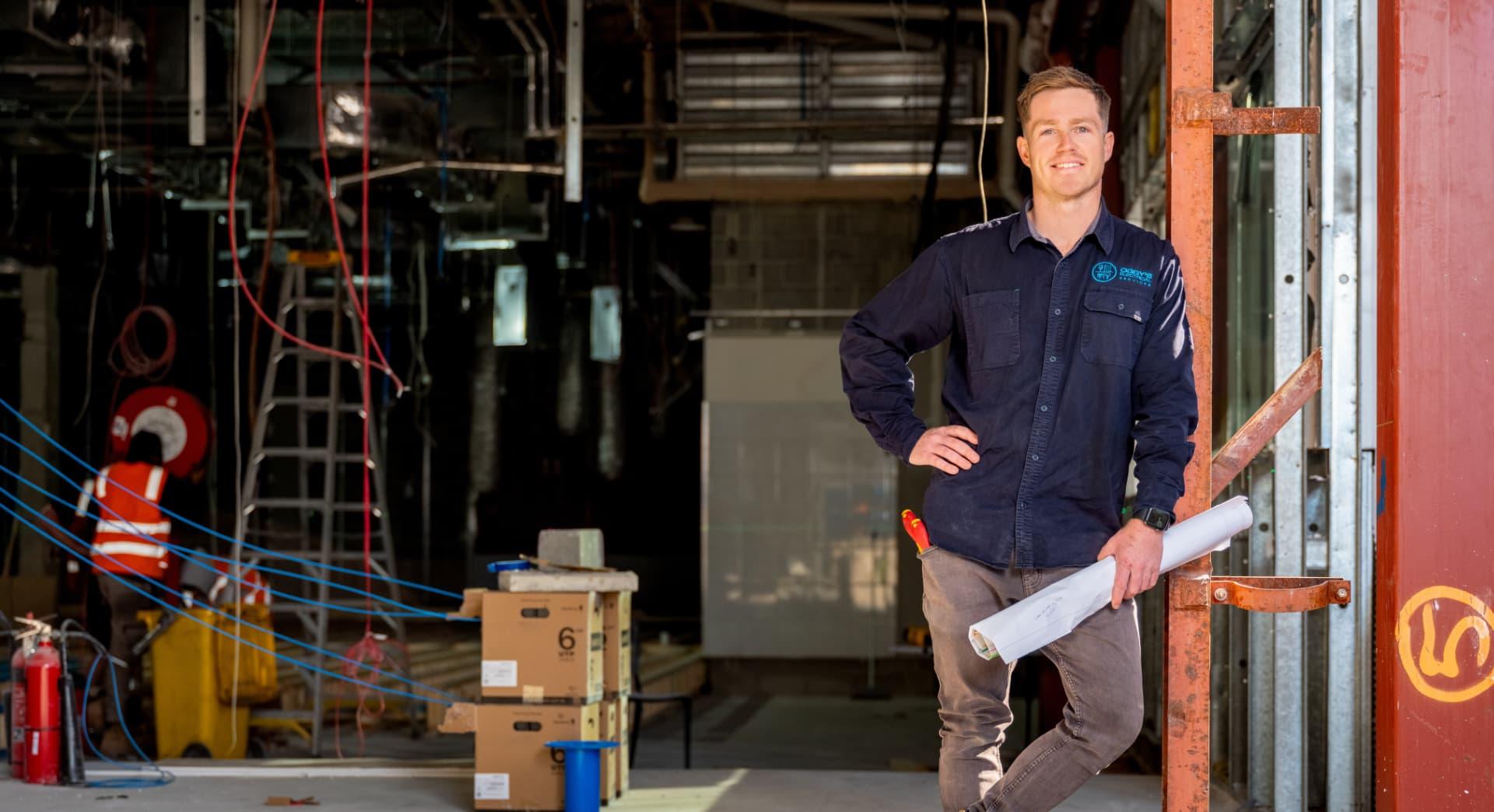We’ve all thought about making a career change, and many of us have (multiple times). From 20-somethings to those nearing retirement, we all wonder if we’re in the right job.
Who thinks about finding a new career? Everyone.
The career you picked at the age of 18 is not what you have to do forever. Jobs evolve. What you loved about your job when you started might look entirely different now.
Here’s an example. Ellen was a graphic designer in the 1960s. She worked for a big ad agency (think Mad Men) before there was Adobe Illustrator or InDesign. Ellen enjoyed working with pen and paper and using her hands to create a page layout.
When computers came along, she had a choice to either upskill and learn the new tools or find another job that allowed her to be artistic in other ways.
Related: Signs it’s time to make a change
8 ways to make the leap
Greater job satisfaction is closer than you think. Here’s how to find it.
- Take a break from your current job.
- Prioritise your happiness.
- Volunteer.
- Don’t be afraid to go backwards to move ahead.
- Imagine your life as a movie.
- Seek advice.
- Stay true to yourself.
- Look for a lateral change.
Let’s meet eight friends who changed careers at different stages. They all went about finding a new career path differently but in the end, all are happier.
1. Take a break from your current job

Sometimes we just need to take a break and discover what we really want. Lachlan thought he wanted out of banking forever. So he used his current employer’s career break scheme to find a new job for 12 months.
Take advantage of the long service leave and benefits scheme your employer offers.
We’re lucky in Australia. Long service leave and other benefits offered by employers mean we can take time to reflect if our career goals have changed. Lachlan was able to find a job in a non-competing industry and try it. After a year, he realised he enjoyed banking, but not his role.
2. Prioritise your happiness
Hannah was a 20-something lawyer landing her first job when it hit her — she didn’t want to be a lawyer. The time and expense she’d already invested in her education would keep many people in a loveless career until retirement. But Hannah knew she’d be miserable.
Listen to your instincts. If you dread going to work, it’s time to change.
She was young and decided to go back to Uni and study medicine, another long road. In the end, Hannah was much happier working in healthcare. As a bonus, she used her law degree in more ways than she imagined.
3. Volunteer

Kate was a marketing professional reentering the workforce after raising her family for the last decade. Her role as a project manager for a large corporation didn't transfer well, now that she lived in a regional area. Time for new career goals.
She volunteered as a marketing coordinator for the local women’s network. Kate not only met other professional women, but also gained a clearer understanding of what opportunities were available in the area. Volunteering is a great way to test the waters before committing to a new path.
4. Don’t be afraid to go backwards to move ahead
Jen loved her profession but wanted to scale back her hours and responsibility. Her dream was to work overseas, but she needed to recertify to meet the new country’s criteria.
You might need to retrain or take a temporary position you’re overqualified for.
Taking a cut in pay and returning to performing entry-level tasks was not attractive, but Jen realised it was a two-year sacrifice she was ready to make. Looking ahead, two years seems like a lot. Looking back, it went fast, and Jen was happy she did it.
5. Imagine your life as a movie
What does the lead character do every day?
Susan needed to redefine herself after she sold her portion of two businesses. While binge-watching a Netflix series, she had an epiphany. She wanted to become a copywriter.
She didn’t have training as a writer, but her business background provided invaluable insight into communicating key marketing messages. Susan enrolled in online courses, talked to other copywriters and successfully redefined her career.
6. Seek advice

Luke was miserable in his job. For eight years he worked in a toxic work environment. He earned a great income, and couldn’t get himself to quit. He secretly hoped he’d be sacked.
After confiding in a friend who coached him through the process, and told him he could live on less money, he made the leap. Luke took a massive pay cut, but loves his new job, feels healthier and wishes he’d left sooner.
7. Stay true to yourself
Andrew loved his job for 30 years, but then one day he didn’t. He realised he hadn’t changed, his job had changed.
As a teacher, Andrew’s subject was becoming outdated and not attracting students anymore. The skills he taught were life skills, and more important than ever, but education evolves.
Andrew decided to repackage his knowledge and find a new way to teach students. By partnering with a technology company, he created an app-based learning program geared toward students and reignited his passion for teaching again.
8. Look for a lateral change
Kathy wanted to get out of finance altogether. There was little about the job she enjoyed, and the industry didn’t suit her.
When she talked to her manager about leaving, he asked about her career goals and what she liked to do. After Kathy took an aptitude test and worked through online resources, her manager found a position for her in another department.
A small change could be all you need.
Kathy never thought moving laterally would promote her strengths as they did. She was happy to stay with the company and much happier in her new role.
Four things you can do right now
Not sure where to start on a new career path? Try doing these things:
- Find a friend or career coach who will help you sort through your thoughts.
- Create a LinkedIn profile. This is the first stop for anyone reviewing your job application.
- Do one thing every day. Get to know yourself, connect with others or research options.
- Volunteer or freelance in your desired field. It’s easier to land a new job when you already have one.
When re-evaluating your career goals, it’s a good idea to talk to others. If you ask, the stories and advice are plentiful. Your friends know you better than you think and strangers will see strengths you didn’t realise. Career coaches have all sorts of tips and tools you’ve never thought of.
You can make a career change
Changing careers is a big decision, one that can definitely lead to something better. Whatever you do, don’t be impulsive. Approach a career change as if you were starting a new business. Take time to reflect and plan before you jump into something new.






